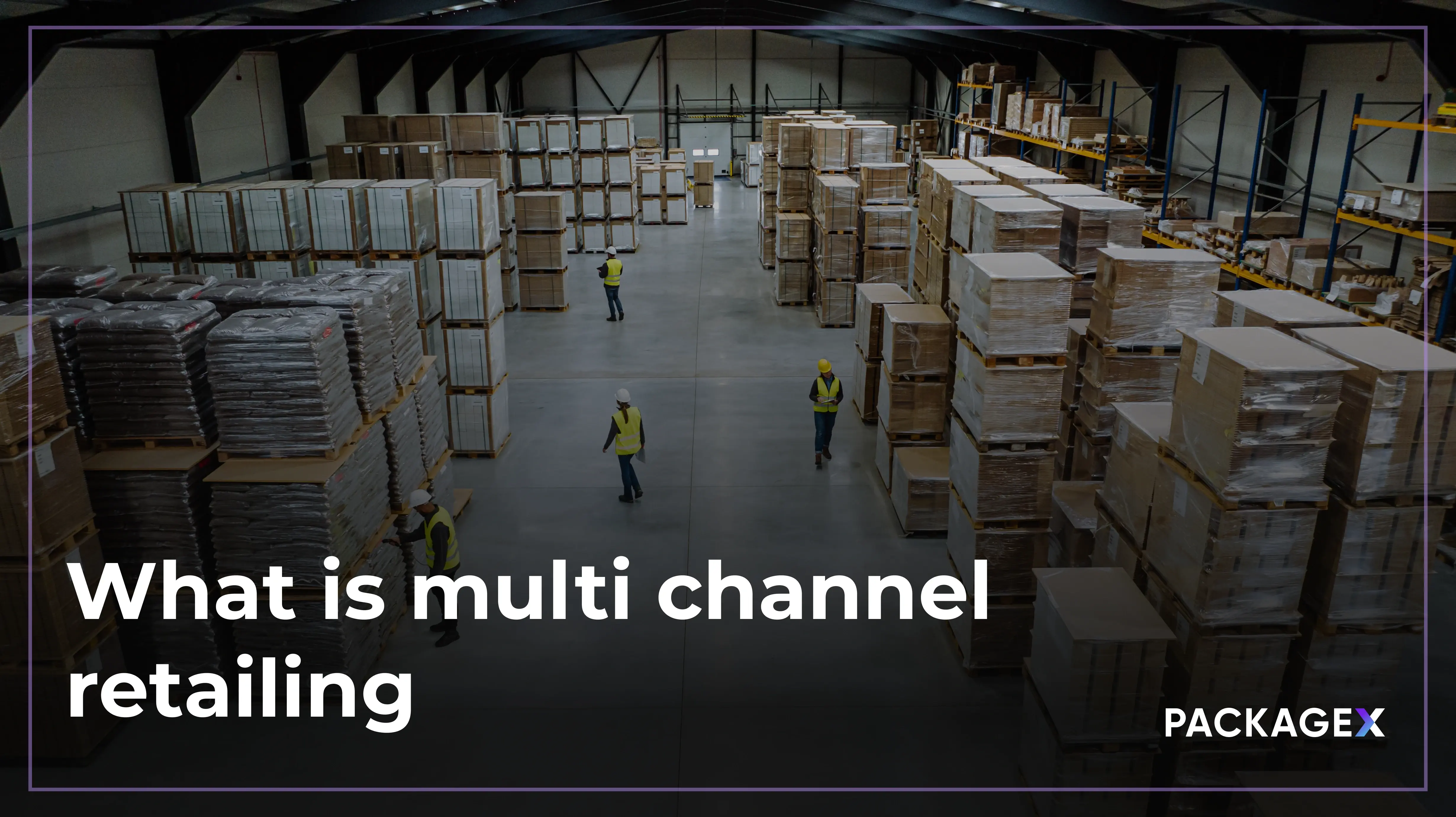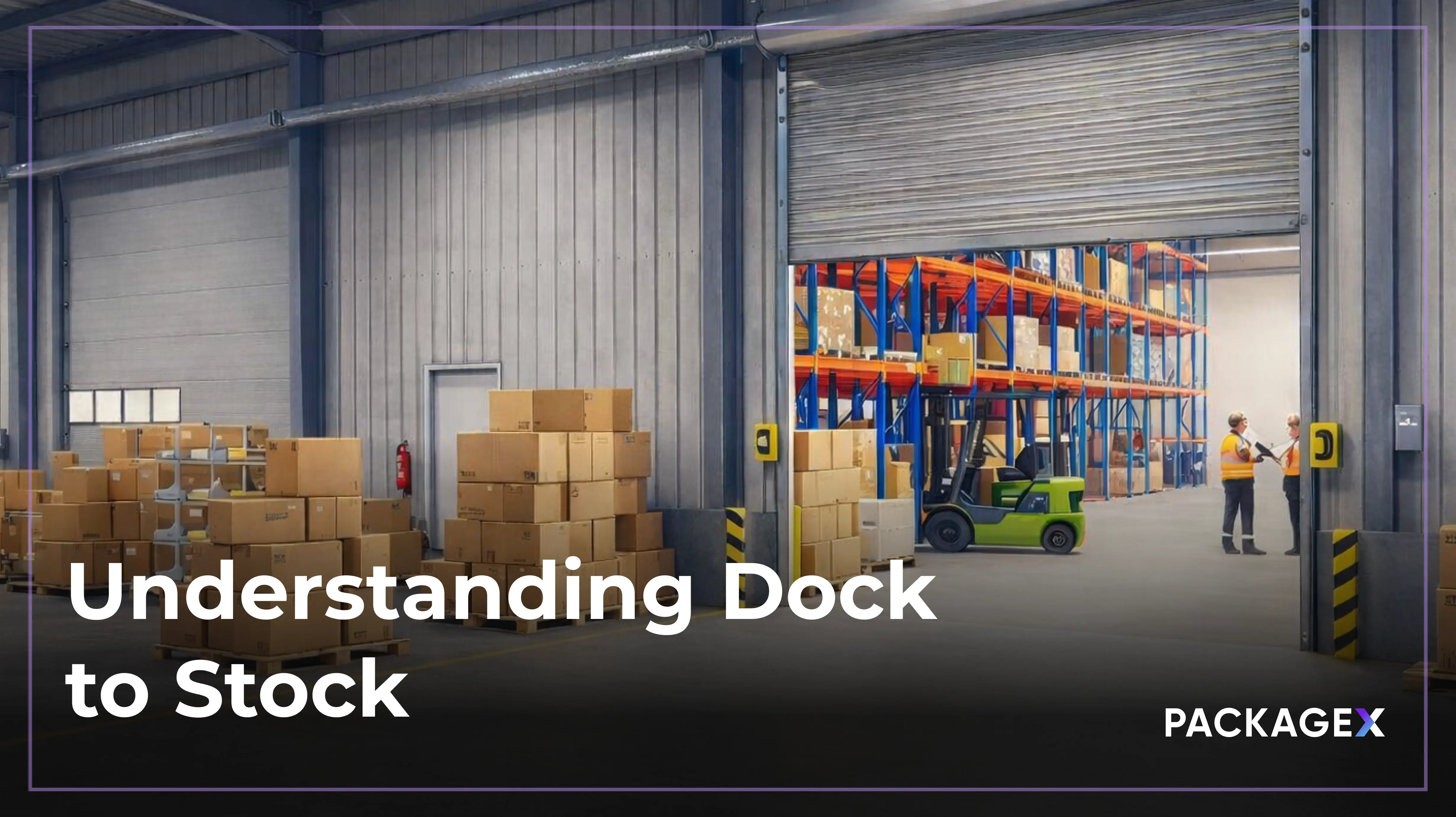Logistics plays a central role in global trade and business growth. Every product we buy depends on supply chains. From food to electronics, they rely on efficient movement. Companies that manage logistics well lower costs. Along with improving delivery speed, and keeps customers satisfied.
The global logistics market is projected to grow from USD 78.74 billion in 2024 to USD 187.45 billion by 2032. It shows a strong CAGR of 11%. This growth proves that logistics and supply chain management power modern commerce.
Strong logistics supply chain management gives businesses an edge. It helps them handle rising customer expectations, balance transportation needs, and reduce risks. In a competitive economy, efficient logistics management is not just a support. It is a key factor in long-term success.
What is Logistics Management?
Logistics management is the planning and control of how goods and information move from origin to destination. It covers procurement, storage, transportation, warehousing, and distribution. The aim is simple. Deliver the right product in the right quantity. At the right time and place. In the right condition and at the right cost.
The term has roots in the military, where it referred to keeping troops supplied with equipment and rations. In business, it now defines how companies handle inbound and outbound flows of goods. This includes everything from sourcing raw materials to shipping finished products to customers.
Logistics management is a core part of supply chain optimization. It shapes how resources are used, how fast deliveries happen, and how costs can be reduced. Retail, e-commerce, and manufacturing companies rely on it. It keeps operations efficient and customers satisfied.
Key Functions of Logistics Management
Logistics management is more than moving goods. It connects supply, storage, and delivery into a single flow. Each function plays a role in keeping operations fast and cost-effective.
Procurement
Every supply chain begins with procurement. It covers sourcing raw materials or finished goods. Strong procurement practices reduce costs and create stable supply.
Transportation
Transportation is the backbone of logistics. Companies use road, rail, sea, and air to move products. Strong transportation and logistics management reduces delays and keeps distribution reliable.
Warehousing
Warehousing keeps products safe until needed. Good storage practices protect stock and support faster order cycles. Many firms now depend on advanced warehouse management systems to manage space better.
Inventory Management
Smart inventory management balances supply with demand. Too much stock increases storage costs. Too little stock risks losing sales. Smart logistics management solutions help track demand and adjust stock levels.
Order Fulfillment
Order fulfillment delivers on customer promises. It covers picking, packing, and shipping. Strong logistics management services speed up fulfillment and raise customer satisfaction.
Reverse Logistics
Returns and recycling are part of modern logistics. Reverse logistics manages product returns, repairs, and recycling. It helps reduce waste and strengthens customer trust.
Together, these functions build a smooth supply chain. Strong logistics and supply chain management depend on how well these parts work together.
Why is Logistics Management Important?
Here’s why logistics management is important for modern businesses:
Better Customer Experience
Strong logistics management ensures on-time and accurate deliveries. Customers today expect fast and reliable service. A single delay can affect brand trust. With effective logistics and supply chain management, businesses improve customer satisfaction. They also cut down on costly returns.
Lower Costs and Higher Efficiency
A well-planned logistics management system helps companies streamline operations. It trims fuel costs and avoids delays, as well. Businesses that adopt logistics management software also gain real-time inventory visibility. This reduces waste and ensures products are available when needed. This makes supply chain and logistics management more cost-effective.
Higher Profit Margins
When logistics supply chain management is optimized, companies prevent stockouts and avoid overstocking. Smooth transportation and logistics management improve delivery times. Better delivery drives revenue growth and stronger profit margins.
Stronger Risk Management
Disruptions in logistics and supply chain management can halt production and damage customer relationships. Companies face fewer risks with advanced logistics tools. These solutions improve visibility across the supply chain. Real-time data analytics strengthen logistics risk management to help businesses.
Flexibility and Growth
Logistics management services give companies the agility to respond to changing demand. While allowing it to expand into new markets. By combining supply chain management and logistics with advanced technology, businesses stay competitive in fast-moving industries.
Benefits of Logistics Management
Strong logistics management is the backbone of supply chain success. Businesses use logistics management solutions to improve operations. Here are the top benefits:
1. Cost Savings
A logistics management system helps reduce costs across transportation, warehousing, and inventory. Route optimization lowers fuel use. Better warehouse planning reduces storage costs. Smart inventory control prevents overstocking and wasted capital.
2. Greater Efficiency
Logistics and supply chain management rely on speed and accuracy. A structured logistics management process streamlines order processing, warehousing, and last-mile delivery. It shortens lead times and keeps operations consistent.
3. Improved Customer Experience
Logistics management services ensure orders arrive on time and in the right condition. Accurate tracking and flexible delivery options give customers reliability and confidence. Satisfied customers often turn into repeat buyers.
4. Risk Reduction
Supply chain and logistics management often face risks like shipment delays and lost packages. Logistics risk management lowers these challenges by using real-time tracking and proactive monitoring.
5. Competitive Edge
Companies with strong logistics management solutions gain a clear market advantage. Faster delivery, lower costs, and reliable service create trust and long-term loyalty. In competitive industries, this can define market share.
Logistics Management vs Supply Chain Management
Logistics management and supply chain management are often confused. Many use the terms as if they mean the same thing. In practice, they serve different purposes.
Logistics management deals with the movement and storage of goods. It focuses on transportation, fulfillment warehousing, order fulfillment, and reverse logistics. It begins with material sourcing and ends with product delivery to customers. A logistics management system or logistics management software helps companies handle these daily operations.
Supply chain management covers a broader scope. It includes planning, sourcing, production, and logistics. It connects multiple companies in one network, from suppliers to manufacturers and distributors. Supply chain logistics management looks at strategy, risk, and performance across the entire chain.
Here is a clear view of the difference:
In short, logistics focuses on how goods move. Supply chain management sets the strategy for how all parties connect. Both are linked, but they solve different problems. Companies that combine logistics management solutions with supply chain management can achieve success.
Future Trends in Logistics Management
The logistics management industry is entering a new phase. E-commerce, technology, and sustainability fuel market growth. The following are some future trends that we can witness:
Market Growth Driven by e-commerce
Online shopping continues to push the need for faster and more accurate deliveries. Retailers must rethink logistics and supply chain management to meet rising expectations. Many rely on third-party logistics providers to manage transportation and logistics management at scale.
Rise of Digitization and Automation
Automation is no longer optional. Warehouses are using robots, automated storage systems, and guided vehicles. Companies deploy logistics management systems to improve efficiency. AI and data analytics help predict demand. They optimize freight routes while also strengthening supply chain management.
The Expanding Role of Third-Party Logistics
The market for 3PLs is growing fast. Small and mid-sized operators are offering logistics management services to support larger enterprises. This shift makes global supply chain and logistics management more flexible and cost-efficient.
Green Supply Chains
Sustainability is shaping the future of logistics supply chain management. Companies are adopting energy-efficient vehicles, optimized routes, and recyclable packaging. State incentives encourage greener operations and better logistics risk management practices.
Agility and Visibility
Businesses are building supply chains that can adapt quickly. They invest in digital tools that improve supply chain visibility and reduce costs. A modern logistics management solution offers the transparency needed to respond to changing market conditions.
Smart Logistics Strategies for Businesses
AI is changing how businesses run logistics and supply chain management. Real-time data and smart automation make it faster. They also make the supply chain more accurate and help with decisions. Companies using logistics management software and AI tools gain visibility and serve customers faster.
Real-Time Data and Analytics
AI works with IoT sensors to track shipments in real-time. These sensors monitor temperature, humidity, and location inside containers. Predictive analytics uses this data and past trends to forecast demand. This helps businesses plan resources and avoid stockouts or delays. With logistics management systems, managers can make data-driven choices. This will eventually help in inventory control.
Optimize Warehouse Operations
AI boosts warehouse operations efficiency through automation. Robotics and automated systems speed up picking, packing, and sorting. Autonomous mobile robots move goods between sections without human help, lowering labor costs. Smart sorting tools reduce mistakes and shorten processing times. These improvements help warehouse operations align with logistics and supply chain management goals.
Strategic Network Design
AI analyzes geography and demand to place warehouses in the right locations. This reduces shipping distances and costs. It can also suggest the best transportation modes based on cost and reliability. Supply chain logistics management becomes leaner with just-in-time inventory and cross-docking. While also helping to cut storage costs and delivery lead times.
Embrace New Technology
AI integrates with innovations like blockchain, 3D printing, and drones. Blockchain secures transactions and tracking. 3D printing supports on-demand production closer to customers, reducing shipping needs. Drone delivery offers a faster and cheaper option for last-mile logistics. These tools expand how supply chain and logistics management work in practice.
Seven Rights of Logistics Management
Logistics management is at the center of supply chain logistics management. To understand it, experts often point to the seven rights. These guide every decision in logistics and supply chain management.
- Right product: Goods that match customer demand.
- Right quantity: No excess stock or shortage.
- Right condition: Products must arrive safely and ready for use.
- Right place: Delivery to the correct warehouse or customer location.
- Right time: On schedule, without costly delays.
- Right price: Controlled logistics management costs.
- Right customer: The order reaches the intended buyer.
These seven rights are the foundation of transportation and logistics management. Companies use logistics management solutions to follow this framework.
PackageX provides logistics management software that supports warehouse operations, retail, and distribution. This creates efficiency across logistics and supply chain management while reducing risks.
Why PackageX Logistics Management Solutions Are the Right Choice?
PackageX goes beyond standard logistics management services. It brings speed, accuracy, and flexibility to modern supply chain operations. PackageX logistics management software adapts to your needs. Whether you run a small business or an enterprise.
Why it’s the smart choice for logistics and supply chain management:
- Streamlines logistics management processes with automation and real-time visibility.
- Provides an advanced logistics management system that reduces delays and errors.
- Strengthens logistics risk management by offering secure, data-driven insights.
- Integrates with existing supply chain logistics management platforms for smoother workflows.
- Offers cloud-based access so teams can manage logistics operations anytime, anywhere.
With PackageX, logistics management services become more reliable and future-ready.
FAQs
What are the Three Types of Logistics?
Logistics can be divided into three main types:
- Inbound Logistics: Manages the flow of raw materials and goods from suppliers to your business. It ensures timely delivery and proper storage.
- Outbound Logistics: Focuses on shipping finished products to customers or retailers. It includes transportation, warehousing, and order fulfillment.
- Reverse Logistics: Handles returns, recycling, and disposal of products. It improves customer satisfaction and reduces losses.
What Does a Logistics Manager Do?
A logistics manager oversees the movement of goods and information across the supply chain. Their responsibilities include:
- Planning and optimizing transportation routes.
- Managing warehousing and inventory levels.
- Coordinating order fulfillment and reverse logistics.
- Monitoring logistics risk management and solving delays.
What is Logistics in Simple Words?
Logistics is the process of moving goods, services, and information from the origin to the customer. It ensures the right product reaches the right place at the right time.
What are the Four Flows of Logistics?
The four flows of logistics describe how goods and information move:
- Product Flow: Physical movement of goods from suppliers to customers.
- Information Flow: Data sharing across the supply chain for better decision-making.
- Financial Flow: Payments, invoices, and credit between suppliers, businesses, and customers.
Reverse Flow: Returns, recycling, and disposal of products.



.webp)
